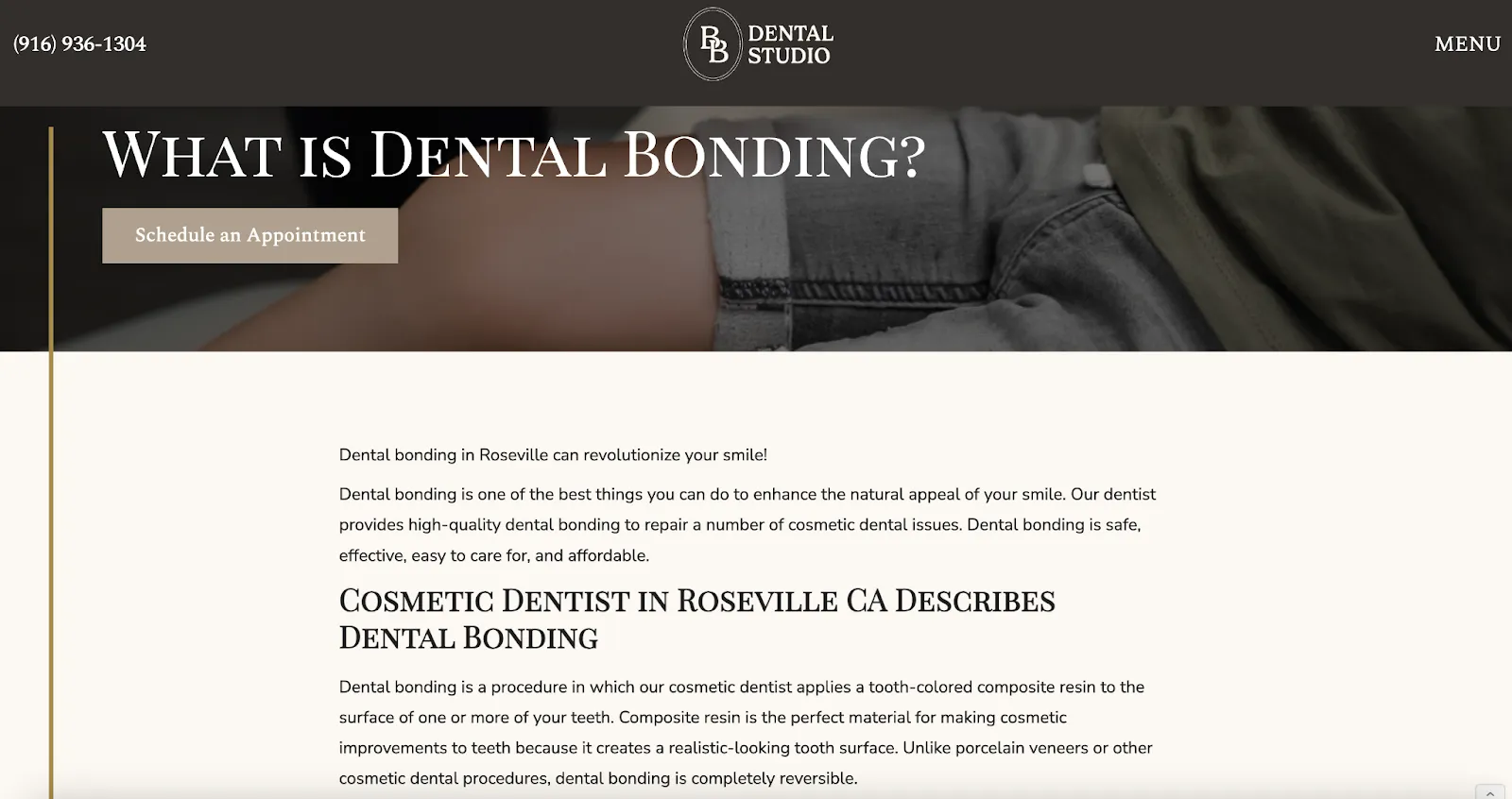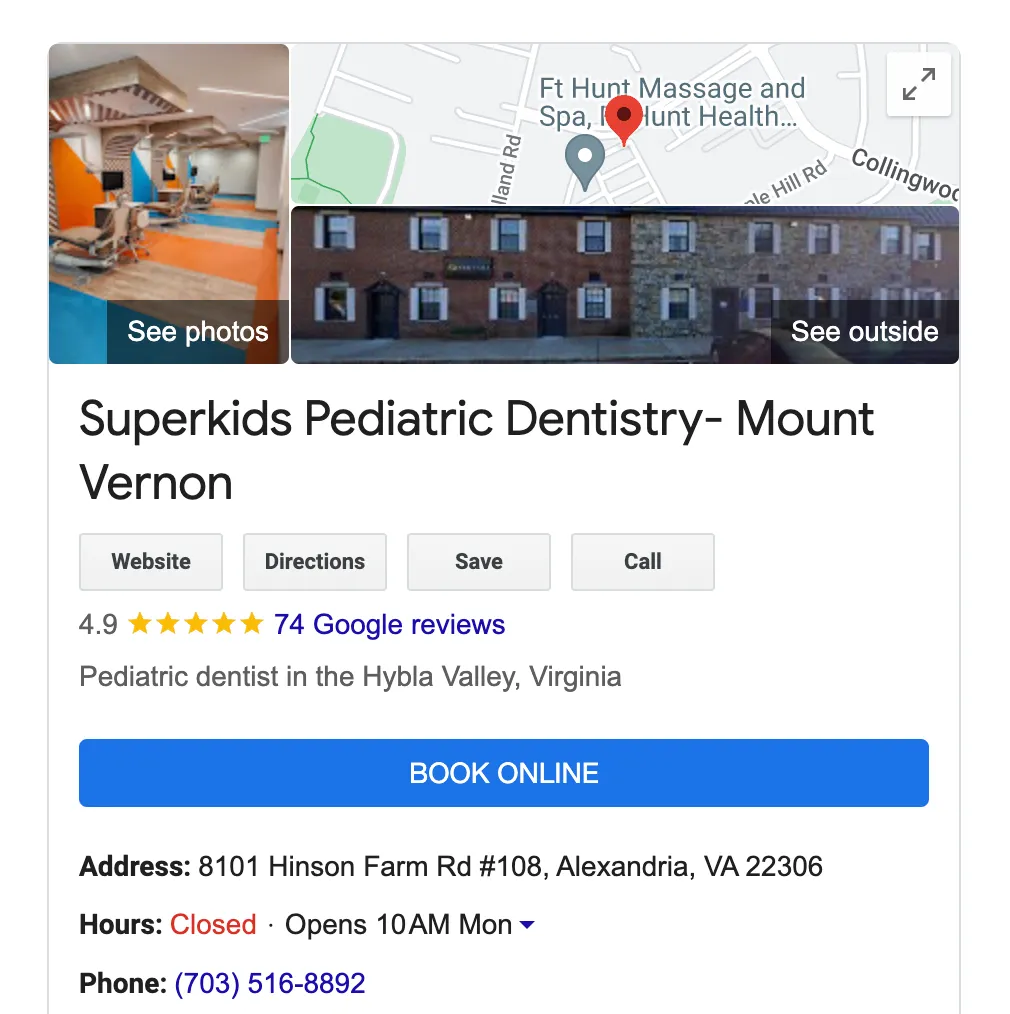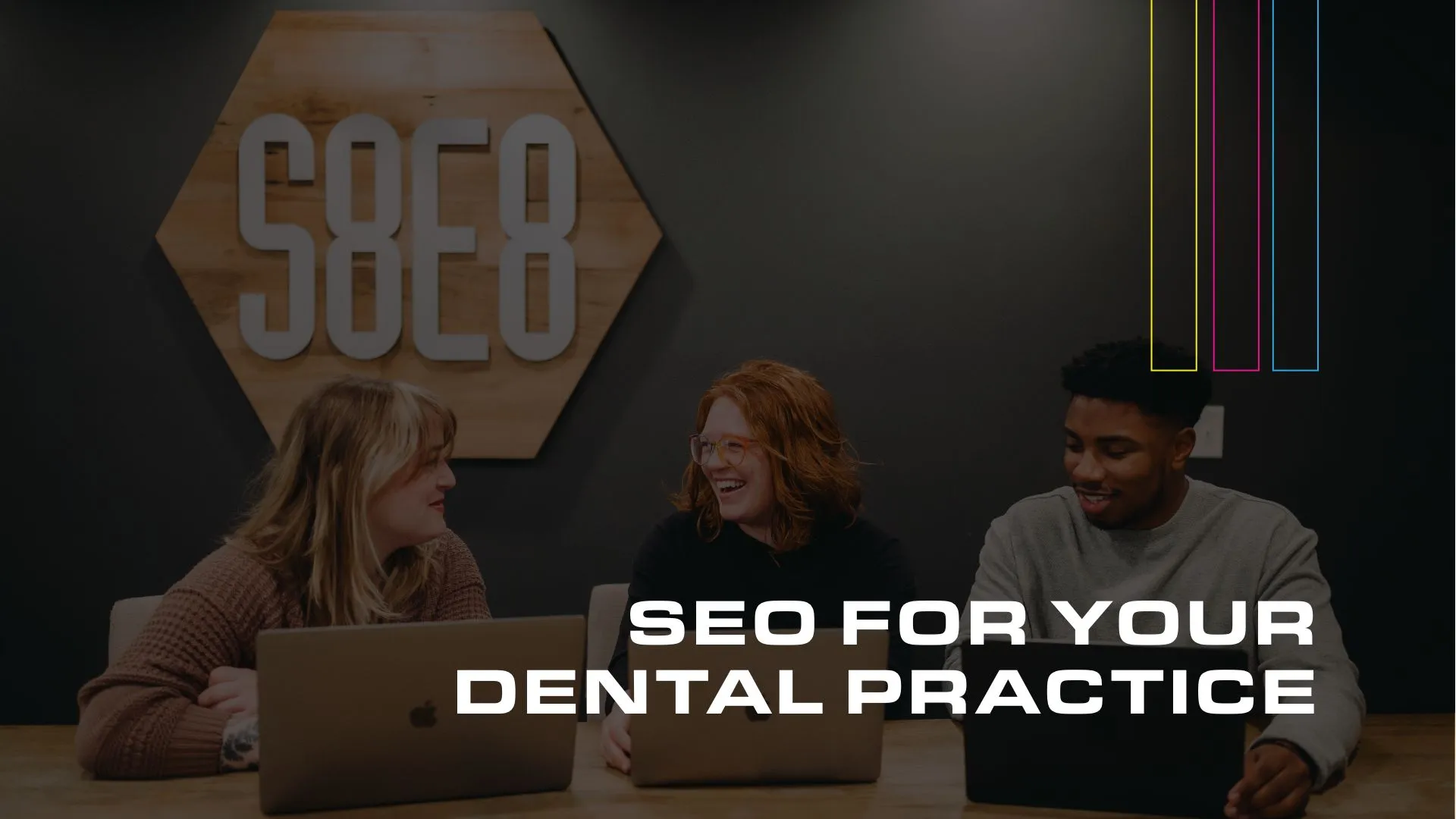SEO for Your Dental Practice
If you want your dental practice to compete locally, it’s crucial to have a strong online presence. A key element of that presence is search engine optimization, or SEO. Every day, billions of people use search engines like Google when shopping for products and services. With quality SEO, your practice will appear early on the search engine results page (SERP), increasing your visibility and generating more business.
Seems simple enough, but how do you get your practice to that coveted #1 spot on Google? SEO tactics vary from industry to industry, so it’s important to tailor your strategy to your specific business’ needs.
What makes dental SEO different from other forms of SEO?
SEO for dentistry, and the medical field at large, is something of a unique beast. Unlike ecommerce, where products are sold and shipped throughout the world, dental SEO requires a much more localized approach. After all, it’s probably not a good idea to target customers in California if you’re a dentist in Ohio. The main focus of your strategy as a dentist should be to rank highly for dental services in your locale.
For example, let’s say your practice offers teeth whitening in Columbus, Ohio. You’ll want to optimize your website for search terms such as, “teeth whitening columbus” and “columbus cosmetic dentist” rather than simply, “teeth whitening” or, “cosmetic dentist.”
How do I rank highly for dental services?
Now that we’ve identified the strategy, it’s time to talk about tactics. A good SEO presence usually comes from the use of multiple effective tactics.
Blogs
A quality blog campaign is always a great start. Decide which services you want to rank well for, and then write content about them. Use an SEO service like Moz, KWFinder, or Ubersuggest to identify relevant keywords. Sprinkle in these keywords throughout your article to let search engines know what it is about. It’s important that you don’t overuse these keywords, a mistake known as “keyword stuffing” in the SEO community.

Technical SEO
Technical SEO, simply put, is the process of ensuring search engines can read and understand the content of your website. Maybe one of the more daunting SEO tasks, it is a critical step in having your website rank well on the SERP. Search engines are constantly evaluating your website – making sure that links aren’t broken, pages aren’t taking too long to load, and your site is generally user-friendly. Fortunately, there are loads of tools available that can analyze your website for technical flaws and allow you to fix them to get the best results. These include SEMRush, AgencyAnalytics, and more. Keep in mind that after you fix technical issues, it can take some time for search engines to recognize the new changes, so be patient! Keep in mind that no tool is perfect, and many are prone to false positives, so it’s important to use your best judgment when making changes.
Service Landing Pages
It’s always a good idea to have specific pages on your website for the individual services you want to promote. For example, if you want to sell more dental implants, you’ll want a dedicated dental implants page. This makes it easier for customers who are searching for these services in your area to find your practice! Each service page should only target 1 keyword to avoid confusing Google (and your readers).
Local SEO/Google Business Profile
Have you ever searched for a product or service and noticed the little “card” on Google with a business’s phone number, address, and hours? Then you’ve seen a Google Business Profile, or GBP. GBPs may be the most important part of local SEO. GBPs are incredibly useful for businesses and customers alike, and give you the option to share a wealth of information with your potential market. They make it easy for customers to find and contact your office with any questions, resulting in more business for your practice. Use it as a form of social media - updating patients on offerings, changes, or any other information that might be relevant to them.

Claiming your listing is pretty straightforward. Just log into the Google Business Profile Manager with whatever account you plan on using for your practice. If Google already recognizes the existence of your practice, search for it and request management. From there, Google will ask for verification, and you’ll be on your way! If your practice is new, you’ll have to make a new profile, which can take some time to verify and gain traction.
Local Listings and Your Dental Practice
Another important aspect of Local SEO is your other local listings, like Yelp, Apple Maps, Waze, Uber, and Bing Places. It’s important to claim your practice's listings on as many sites as possible, so you can add information such as hours and services. When this information is consistent and correct across all of your listings, it’s a sign to search engines that you are a real business, in a real place, with real customers.
User Experience
Another critical component of good SEO is making sure your website has a good user experience. You want your practice’s site to be easy for normal folks to navigate. Remember, Google keeps track of how long people use your website, what they click on, etc. If there’s an issue driving away users, it will negatively affect your rankings.

Resources
Staying up to date with the latest SEO tools is key to a successful campaign. SEMRush, Moz, and Ubersuggest all offer powerful insights into your website’s performance. They also can offer suggestions and track your progress to keep your practice moving forward in the ever-competitive SEO landscape.
People, Not Robots
It’s easy to fall into the trap of researching Google’s algorithm so much that you lose sight of the algorithm’s purpose: to create a quality user experience. Never sacrifice the readability or ease of use of your site for the sake of perceived SEO benefit. Inevitably, the all-knowing Google will catch on to any tricks intended to game the system. Making a pretty and practical site with useful and interesting content is a much better long-term strategy.
SEO Expectations
Remember that SEO is a marathon, not a sprint. It can take 6 months (or longer) to see results, especially in a saturated market. Google rewards consistent attention to your site, so keep the faith! Just because there aren’t significant results in the opening stretch doesn’t mean things aren’t working, so don’t make any drastic changes to your strategy until the year mark.
SEO may be complex and ever-changing, but the principles mentioned above will never change. If your website is easy to use and your content is relevant, your practice will likely be rewarded. If you have any questions about your dental practice’s SEO strategy, we’re happy to help at Studio 8e8! Good luck, and may the algorithm be ever in your favor.



.jpg)
.jpg)

